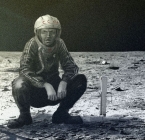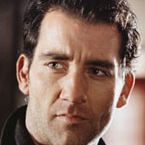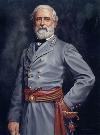RFalvo69
Posts: 1380
Joined: 7/11/2013
From: Lamezia Terme (Italy)
Status: offline

|
quote:
ORIGINAL: Orm
quote:
ORIGINAL: RFalvo69
quote:
ORIGINAL: RangerJoe
quote:
ORIGINAL: RFalvo69
Spurned by a debate in the "WEGO" thread I finally started reading this one.
The style is quite dry and technical - not an easy reading. The book, however, is full of facts I never read about. For example that Hitler's idea to attack France in late 1939 was worse than crazy. The German army had used all the bullets and bombs available during the Polish campaign and the war production still had to catch up (no one had planned for the "Polish Campaign" to become a war).
It is also nice to see first-hand confirmation by Keitel and Halder of a pet-peeve of mine: that while the Germans were engaged in Poland their Western border was barely defended. According to Halder, an attack by the French would have led to the loss of the Ruhr - minimum. Not that you will be able to try it as the French in your average "accurate" ETO game...
That is why I have repeatedly stated that the French should have attacked with whatever they had; just go in and keep going. The reserves would follow later - along with the British.
This is exactly what the German High Command fully expected once "Hitler's Gamble" failed, and France and the UK declared war on Sept. 3rd. Hitler, most famously, simply asked "What now?" No one had an answer. The Allies could have knocked Germany out of the war right then. Even after the German victory in Poland they were facing a spent German Army with their fully mobilised ones.
I suspect that the Germans would have won a stunning victory if the Allies would have gone for an all-out attack on Germany in September 1939. I think that both Keitel and Halder overestimated the ability, and capabilities, of the French, and CW, forces at the beginning of the war.
The problem for the Germans, as presented in this book, was twofold: First, only a veil of forces to cover the French front while the Wehrmacht was involved in Poland (this fact is underlined in other books I read, too); and, second, the sheer lack of a war economy plan for the Germans, which I read about here for the first time. Basically, in September 1940 the German reserve forces had almost no ammo.
Even as late as October 1939 only one-third of the German divisions had been replenished - and with enough ammo for only fifteen days (something which sent Hitler into "ammo-panic" and caused the suicide of General Karl Becker, the chief of the Army Weapons Bureau). The Germans were behind in motorization (a problem further compounded by the wear-and-tear of the vehicles employed in Poland), and even the sheer number of soldier and officers they could deploy (which led to a crash course in the Winter of 1939/40).
The thesis offered by this book (which does seem to be supported by research done on primary sources) is that Hitler wanted to attack France at once because he feared that the Allies would had used the Winter to "catch up". In reality, the exact opposite happened: the Allies deployed the best they could and then sat there. Germany used the "phoney war" to reach the proper shape for the campaign in the West.
Anyway, this is what Keitel said after the war:
"A French attack during the Polish Campaign would have encountered only a German military screen, not a real defense."
And this is Halder:
"The success against Poland was only possible by almost completely baring our western border. If the French had seen the logic of the situation and had used the engagement of the German forces in Poland, they would have been able to cross the Rhine without our being able to prevent it and would have threatened the Ruhr area, which was the most decisive factor for the German conduct of the war."
_____________________________
"Yes darling, I served in the Navy for eight years. I was a cook..."
"Oh dad... so you were a God-damned cook?"
(My 10 years old daughter after watching "The Hunt for Red October")
|
 Printable Version
Printable Version
















 Then think of that combination along with Japan . . .
Then think of that combination along with Japan . . .







 New Messages
New Messages No New Messages
No New Messages Hot Topic w/ New Messages
Hot Topic w/ New Messages Hot Topic w/o New Messages
Hot Topic w/o New Messages Locked w/ New Messages
Locked w/ New Messages Locked w/o New Messages
Locked w/o New Messages Post New Thread
Post New Thread